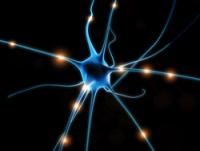Advertisment
Pleasure and pain brain signals disrupted in fibromyalgia patients

New research indicates that a disruption of brain signals for reward and punishment contributes to increased pain sensitivity, known as hyperalgesia, in fibromyalgia patients.
Fibromyalgia is a chronic, musculoskeletal syndrome characterized by widespread joint and muscle pain along with other symptoms such as fatigue, sleep disturbances, and cognitive difficulty. Previous research estimates that fibromyalgia affects 3.4% of women and 0.5% of men in the U.S. Prevalence of this pain disorder increases with age, affecting more than 7% of women between 60 and 79 years of age.
“In patients with fibromyalgia there is an alteration in the central nervous system pain processing and a poor response to topical pain treatments, trigger point injections and opioids,” said lead author Dr. Marco Loggia from Massachusetts General Hospital and Harvard Medical School in Boston. “Our study examines the disruption of brain function involved in the individual experience of pain anticipation and pain relief.”
For the present study, the research team enrolled 31 patients with fibromyalgia and 14 healthy controls. Functional magnetic resonance imaging (MRI) and cuff pressure pain stimuli on the leg were performed on all subjects. During the MRI, participants received visual cues alerting them of impending pain onset (pain anticipation) and pain offset (relief anticipation).
Results show that during pain anticipation and relief, fibromyalgia patients displayed less robust response within brain regions involved in sensory, affective, cognitive and pain regulating processes. The ventral tegmental area (VTA)—a group of neurons in the center of the brain involved in the processing of reward and punishment—displayed activation during pain anticipation and stimulation, but deactivation during anticipation of relief in healthy controls. In contrast, VTA responses during periods of pain, and anticipation of pain and relief, in fibromyalgia patients were significantly reduced or inhibited.
Dr. Loggia concludes, “Our findings suggest that fibromyalgia patients exhibit altered brain responses to punishing and rewarding events, such as expectancy of pain and relief of pain. These observations may contribute to explain the heightened sensitivity to pain, as well as the lack of effectiveness of pain medications such as opioids, observed in these patients. Future studies should further investigate the neurochemical basis underlying these dysfunctions.”
This research was supported by the National Center for Complementary and Alternative Medicine (NCCAM), National Institutes of Health (NIH) grants (R01-AT004714, P01- AT002048, P01-AT006663, R01-AT005280; R01-AG034982, R21-AR057920).
Full citation: “Disrupted Brain Circuitry for Pain-Related Reward/Punishment in Fibromyalgia.” Marco L. Loggia, Chantal Berna, Jieun Kim, Christine M. Cahalan, Randy L. Gollub, Ajay D. Wasan, Richard E. Harris, Robert R. Edwards and Vitaly Napadow. Arthritis & Rheumatism; Published Online: November 5, 2013 (DOI: 10.1002/art.38191).





